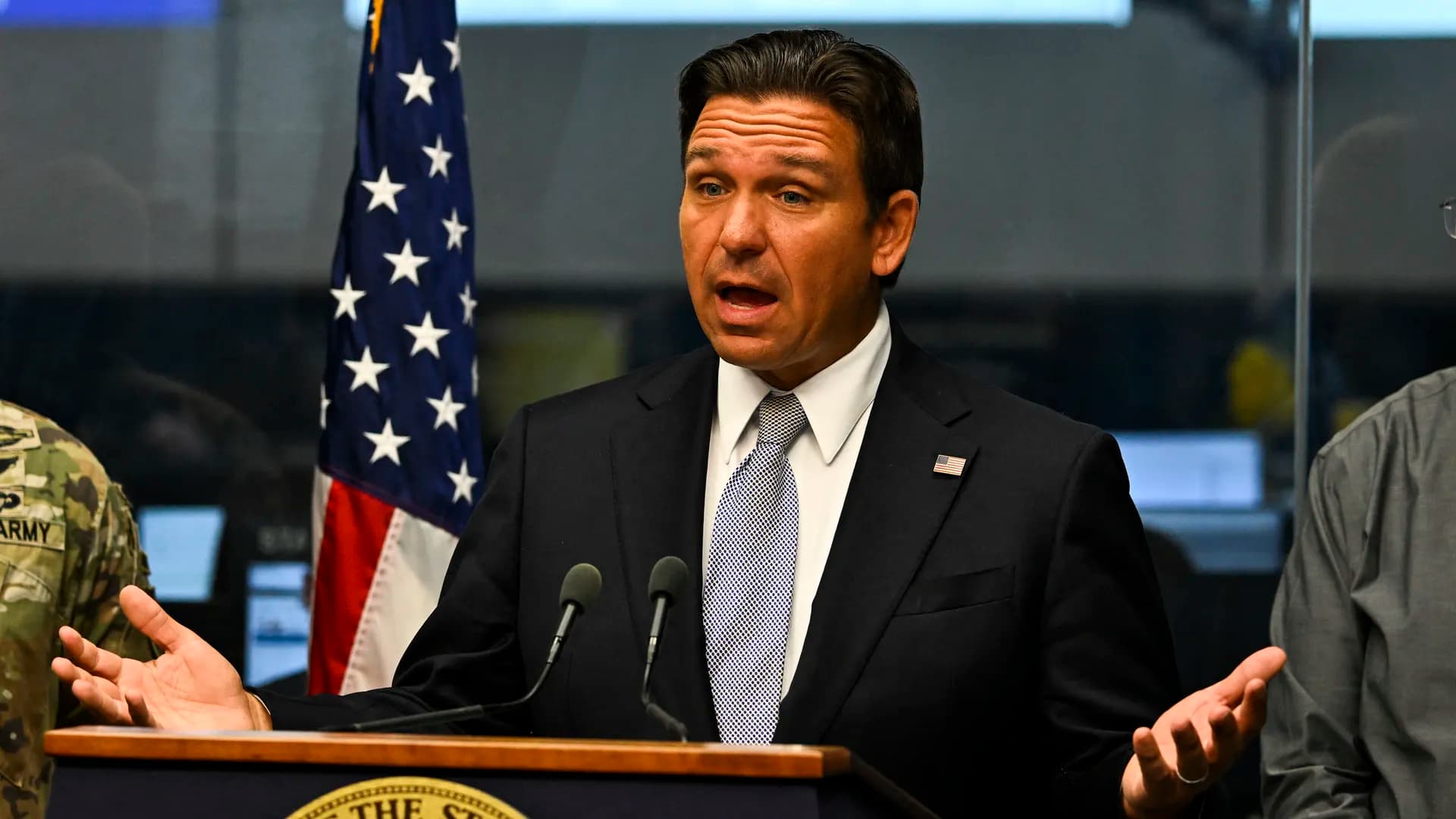Florida"s Dangerous Immigration Strategy
In a shocking move that raises serious ethical concerns, President Trump has greenlit Florida"s plan to utilize National Guard officers as immigration judges. This decision, announced during Trump"s visit to the controversial Alligator Alcatraz detention facility, aims to expedite deportation proceedings by deploying Judge Advocate General (JAG) officers as judges. Governor Ron DeSantis has long pushed for this initiative, which is set to allow these military personnel to process deportations in a matter of weeks, undermining the judicial oversight that is a cornerstone of the American legal system.
As reported by Tampa Bay Times, the plan involves training nine JAG officers in rapid-fire deportation processes, a dystopian concept that not only militarizes immigration enforcement but also sidesteps the critical legal protections that should be afforded to asylum seekers and undocumented immigrants.
Implications for Justice and Human Rights
This drastic measure poses numerous implications for human rights and social justice in Florida. The legal framework surrounding immigration judges is already fraught with inconsistencies and lacks the independence that federal judges enjoy. By inserting the National Guard into this sensitive area, the DeSantis administration is prioritizing speed over justice, potentially leading to wrongful deportations and violations of due process.
Moreover, this move is a blatant reflection of the broader anti-immigrant sentiment propagated by the current administration. As Florida becomes a testing ground for such extreme policies, the repercussions may embolden other states to adopt similar draconian measures, eroding the rights of marginalized communities nationwide.

Alligator Alcatraz pictures: Trump visits Florida detention center
Florida"s Solar Industry Faces Devastating Cuts
Simultaneously, Florida"s solar industry is reeling from the effects of Trump"s recently signed "One Big Beautiful Bill," which rolls back critical clean energy incentives. The legislation eliminates the federal residential rooftop solar tax credit, a move that solar advocates warn could stall the growth of Florida"s burgeoning solar market.
According to industry experts, the elimination of this tax credit, along with other cuts to clean energy programs, jeopardizes over 10,000 jobs in the state and threatens the viability of nine manufacturing sites. The immediate fallout has been staggering, with reports indicating that approximately $1.4 billion in clean energy projects were canceled nationwide just last month, as businesses halt investments in the face of this uncertainty.
A Perfect Storm for Environmental Justice
This twin assault on both immigrant rights and climate action reveals a devastating intersection of injustice. As the state ramps up its deportation machine, it simultaneously dismantles the clean energy policies that could provide economic relief and environmental sustainability to countless Floridians. This is particularly concerning as utility rates continue to rise, putting an additional strain on low-income families who are already disproportionately affected by both environmental degradation and immigration enforcement.
Furthermore, the rollback of clean energy initiatives directly contradicts the urgent need for sustainable solutions to combat climate change. Florida, with its unique ecosystems and vulnerable coastal communities, is at the frontline of climate impacts. The decision to reduce support for solar energy not only undermines economic growth but also exacerbates environmental injustices faced by marginalized communities who are often left to bear the brunt of climate disasters.

How Trump Is Leaning on the Military to Fulfill His Hopes of ...
Community Response and Activism
In light of these developments, community organizations and activists are mobilizing to resist these policies. Grassroots efforts are underway to advocate for both immigrant rights and sustainable energy solutions, emphasizing the interconnectedness of social justice and environmental advocacy. Organizations are calling for public hearings and increased transparency around the implementation of the National Guard"s role in immigration enforcement as well as for a reinstatement of the solar tax credits.
The urgency of the situation cannot be overstated. As Florida"s policies shift towards militarization and deregulation, it is crucial for constituents to hold their leaders accountable. The consequences of inaction will reverberate through our communities, impacting not only the lives of immigrants but also the future of our planet.

![[Video] Federal officers deploy sting balls and flash grenades at Whipple Building](/_next/image?url=%2Fapi%2Fimage%2Fthumbnails%2Fthumbnail-1768340555229-vhfcc-thumbnail.jpg&w=3840&q=75)
![[Video] Crowd-control weapons used in Minneapolis as anti-ICE protesters attack police vehicle](/_next/image?url=%2Fapi%2Fimage%2Fthumbnails%2Fthumbnail-1768336302231-akxf7s-thumbnail.jpg&w=3840&q=75)

![[Video] Protests erupt in Minneapolis after ICE detains teenager, multiple arrests made](/_next/image?url=%2Fapi%2Fimage%2Fthumbnails%2Fthumbnail-1768331835371-z9ylqg-thumbnail.jpg&w=3840&q=75)


![[Video] Gunfire between Iraqi security forces and Sadr militias in Baghdad](/_next/image?url=%2Fapi%2Fimage%2Fthumbnails%2Fthumbnail-1768343508874-4redb-thumbnail.jpg&w=3840&q=75)
